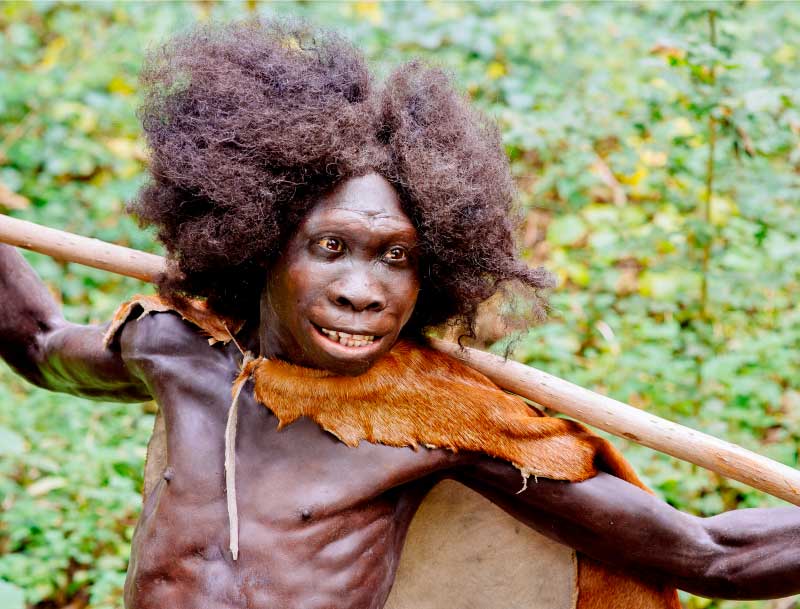In the rich tapestry of human history, the question of black people as the progenitors of Homo sapiens resonates with profound significance. This inquiry invites us to traverse the intricate labyrinth of anthropological evidence, linguistic narratives, and cultural relativism. As we embark on this exploration, we shall uncover how the origins of mankind might reflect broader human truths, shaped by the contexts from which they arise.
The genesis of humankind is entwined with the evolutionary tale of Homo sapiens, encompassing a narrative that unfolds over millennia. Genetic studies suggest that the most ancient of our ancestors, from which all modern humans descend, arose in Africa approximately 200,000 years ago. These intrepid beings embarked on a relentless odyssey, migrating across the continents, adapting to diverse ecosystems, and invariably altering their cultural landscapes.
To assert that black people were the first humans is to engage in a simplistic reduction of a more complex reality. This assertion necessitates a nuanced understanding of identity, genealogy, and the very definition of “human.” In cultural relativism, there exists an imperative to recognize cultural contexts that shape human existence. Within this framework, the African continent is not just a geographical entity; it embodies a primordial cradle, a cultural and biological wellspring contributing to humanity’s extensive heritage.
Yet, the inquiry delves deeper, probing the interconnectedness of race, identity, and evolution. The term “black” is not merely a classification of skin tone; rather, it symbolizes a convergence of numerous ethnicities, languages, and cultures that have traversed the African landscape. The multiplicity of black identities effectively represents a mosaic, forming the bedrock of diverse human experiences. This cultural plurality fuels the narrative regarding early human existence. Each lineage contributes unique threads to the continually evolving narrative of what it means to be human, challenging monolithic interpretations.
The migratory patterns of early humans were not mere escapes from environmental pressures but deliberate acts of exploration and adaptation. As groups moved out of Africa—spanning into Europe, Asia, and beyond—they carried with them not only biological variances but also unique cultural practices and cognitive frameworks. Consequently, the pursuit of understanding human origins must acknowledge these myriad adaptations. The cultural expressions seen today—art, music, spiritual beliefs—are intricate layers, developed over ages, that reveal humanity’s shared history and diversity.
Cultural relativism implores scholars and observers alike to explore these identities without imposing contemporary frameworks, particularly Western paradigms, onto past societies. Accepting cultural relativism requires one to appreciate that early black communities were not stagnant but dynamic entities, developing languages, social structures, and belief systems that played crucial roles in their survival and identity preservation. This cultural richness simultaneously contributes to and emerges from the greater story of humankind.
Fostering an appreciation of individual cultural narratives can enhance our understanding of human origins. The African aesthetic traditions, such as storytelling and oral histories, articulate the experiences and wisdom of those early people, painting a vivid portrait of life and survival across epochs. The stories, imbued with metaphor and meaning, link the past with the present, allowing the unfoldment of humanity’s journey to resonate deeply within the human condition.
Furthermore, the exploration of black origins invites us to ponder more significant societal issues—namely, how narratives of race and ethnicity are crafted and propagated. The historical imposition of colonial narratives often distorted the role of African populations in the story of humanity, rendering them as secondary figures in a larger, Eurocentric drama. Addressing these disparities necessitates an honest grappling with history and the power dynamics that have shaped it. In doing so, we realign the focus of the conversation back to the original cradle of humankind: Africa.
Moreover, an examination of archaeological finds such as the discovery of early hominid fossils—including Australopithecus afarensis and Homo habilis—further enriches this dialogue. These findings, predominantly located in East and Southern Africa, lend credence to the notion that black populations do indeed provide critical insights into the origins of modern humans. The painstaking work of anthropology illuminates the intricate relationship between biological evolution and cultural adaptation, underscoring how our collective past is an integrated narrative of evolution, migration, and innovation.
The implications of understanding black people as potentially the earliest humans are extensive. Recognizing Africa’s centrality in the human story enhances one’s appreciation for the intricate interdependencies that characterize the wider human experience. This acknowledgment transcends mere academic inquiry, prompting a reevaluation of contemporary discussions regarding identity, race, and belonging.
It becomes crucial, therefore, to cultivate a holistic narrative that respects and integrates the multitude of voices and experiences inherent in the human saga. In commemorating the ancestry of black populations as foundational to our shared identity, we illuminate the path through which humanity evolved. This is not a mere academic exercise; it is a philosophical and ethical imperative, reminding us that our diversity and interconnections are the essence of our collective humanity.
In conclusion, the question of whether black people were the first humans transcends simplistic dichotomies of race and origin. As a core component of the human evolutionary journey, black identity is not only foundational but also a vibrant and essential thread weaving through the fabric of human existence. Recognizing this allows for a more nuanced understanding of our shared past, fosters mutual respect, and enriches the grand narrative of humanity. Through cultural relativism, we can celebrate the intricate symphony that humanity represents—a timeless melody echoing from the cradle of civilization.
